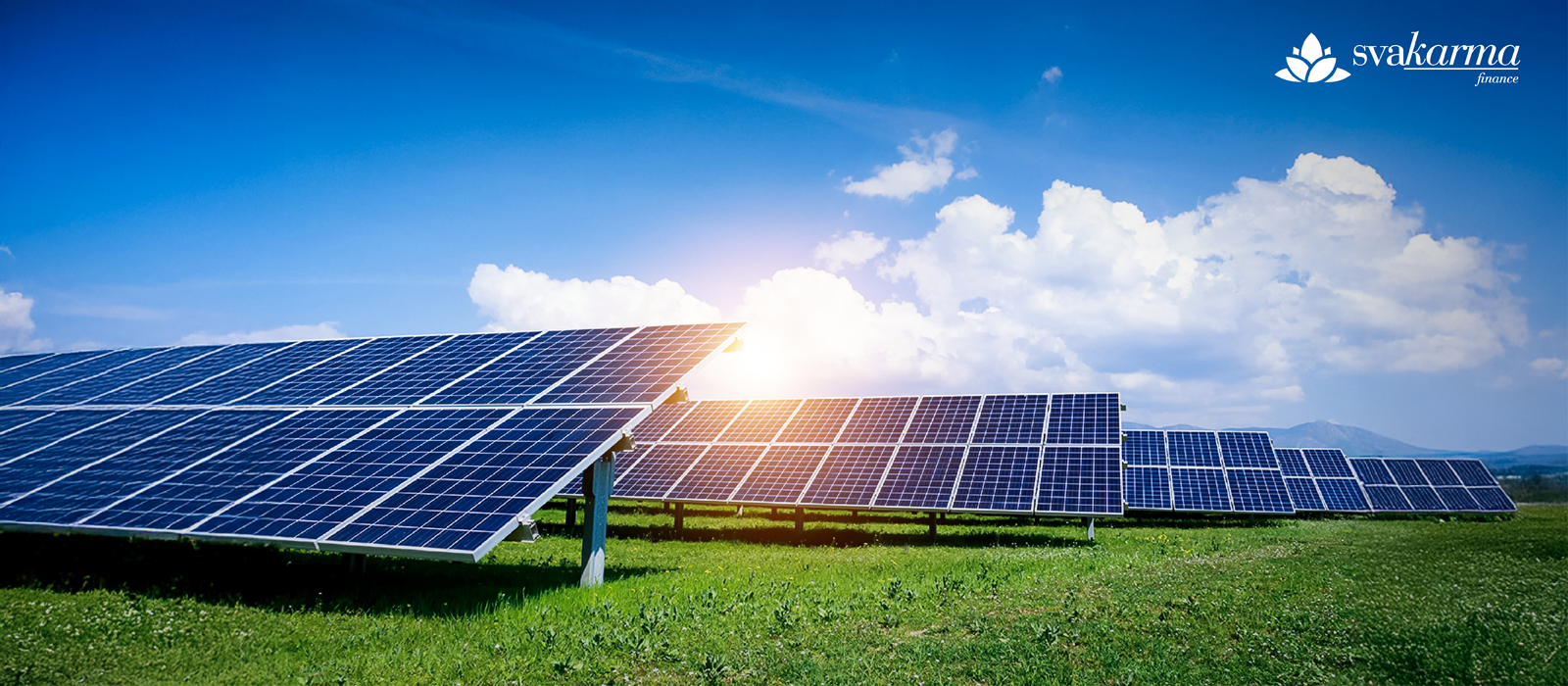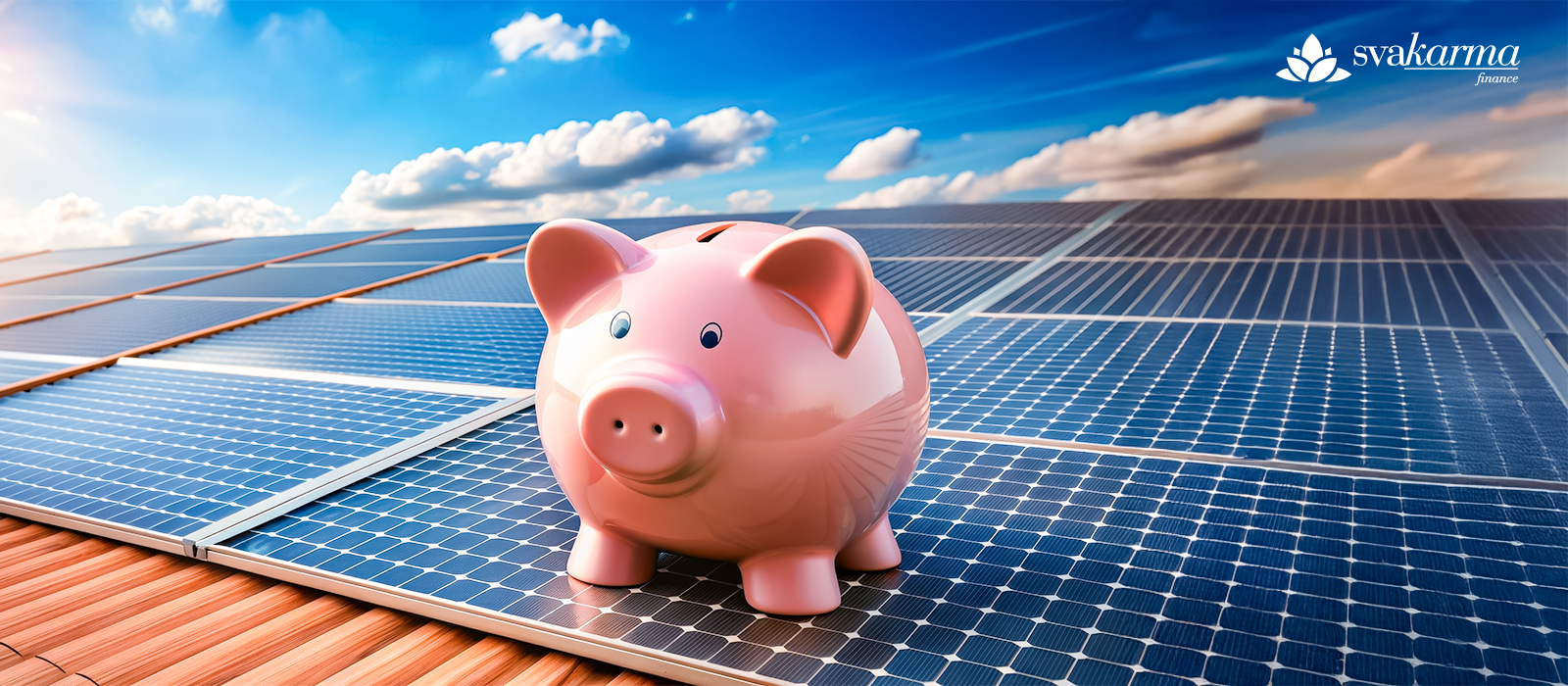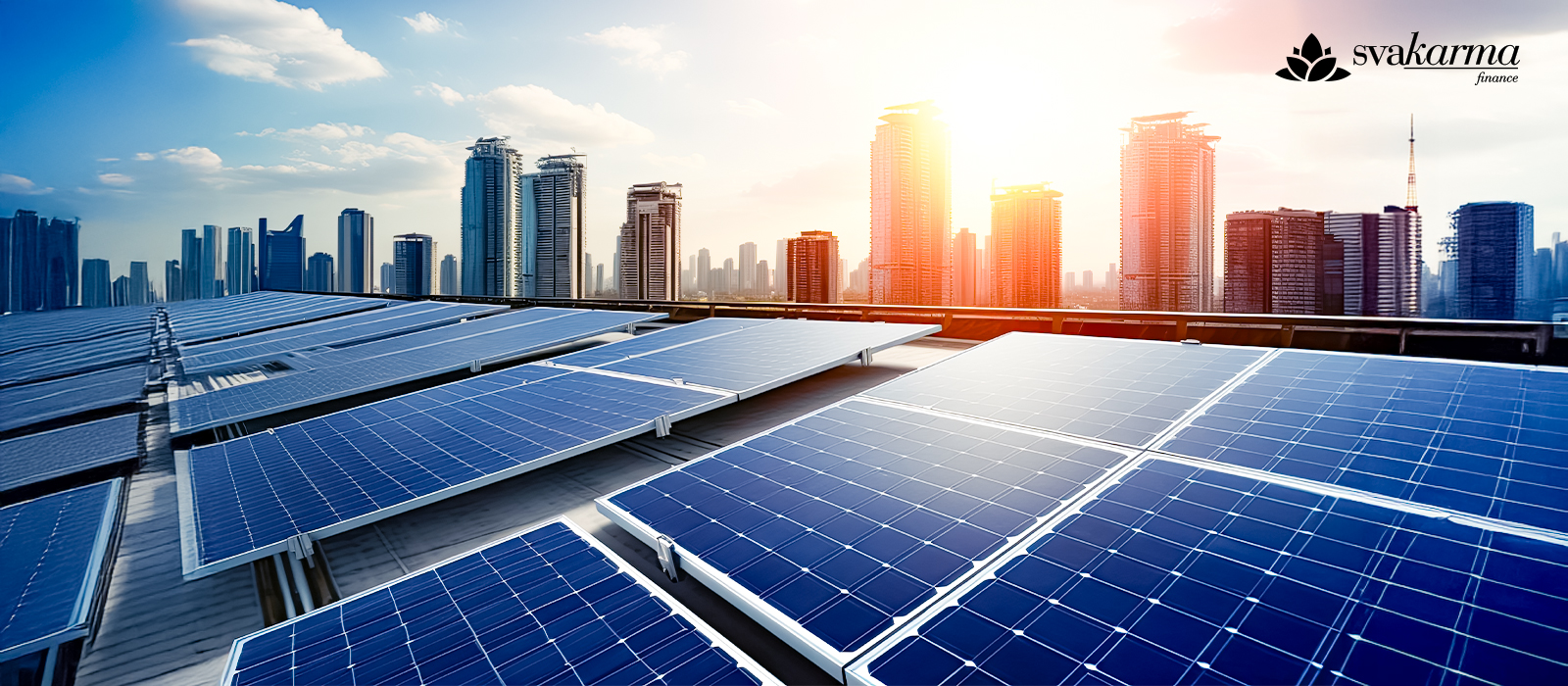Understanding Reactive Power & How Modern Inverters Improve Solar Efficiency for Businesses

With solar energy emerging as a highly attractive solution for businesses across India, its adoption has surged dramatically. As per Invest India, installed solar capacity has grown nearly 30-fold from 2.5 GW in 2014 to around 94.16 GW by November 2024. But going solar isn’t just about installing panels and saving on electricity bills. To optimise the efficiency of your solar panels, understanding the role of inverter reactive power could be the game-changer you've been missing.
What is Reactive Power in Solar Systems?
To understand reactive power, let’s start with the basics. Solar power systems generate active power, which performs useful work like powering your office lights or machines. But they also generate reactive power, which doesn't perform work directly but is essential to maintain voltage levels and ensure smooth functioning of your electrical systems.
In industrial or commercial setups, where the demand for motors, pumps, or HVAC systems is high, reactive power becomes even more critical. Poor management of reactive power can result in power losses, voltage instability, and a significant drop in overall solar system efficiency.
How Solar Inverters Manage Reactive Power
Here’s where solar inverters come into play. Inverters convert the DC electricity generated by your solar panels into AC electricity that your business can use. But modern inverters do much more—they help manage inverter reactive power to ensure stable grid interaction and optimise power quality.
Advanced inverters support Volt-VAR control, meaning they can inject or absorb reactive power based on what your facility or the grid needs. This dynamic balancing improves voltage stability, reduces transmission losses, and enhances the performance of your solar system.
Financing Options for Rooftop Solar Installation
If the upfront cost of rooftop solar is a concern, don't worry. There are several financing options that can make it more manageable. Here are the most popular options:
Why Businesses Must Prioritise Solar Inverter Efficiency
Let’s be clear—solar inverter efficiency isn’t just a technical specification buried in a user manual. It directly impacts your business’s energy savings and long-term return on investment (ROI). Here's how modern inverters contribute to improved solar efficiency for business applications:
1. Higher Energy Yield
Modern inverters are built with high-efficiency ratings, often exceeding 98%. This means more of the sunlight hitting your solar panels is converted into usable energy, translating to more savings on electricity bills for your commercial premises.
2. Reduced Downtime
Intelligent inverters come equipped with diagnostics and remote monitoring tools. They can predict faults, alert maintenance teams, and prevent sudden breakdowns, ensuring your business operations stay uninterrupted and your energy savings are consistent.
3. Grid Compliance
Commercial buildings must often adhere to stricter grid codes. Inverter features like reactive power control ensure compliance, keeping your system connected and stable—even during grid fluctuations.
4. Better Load Matching
Businesses operate a variety of machinery and equipment that place uneven loads on the electrical system. Advanced inverters dynamically respond to these load changes by adjusting reactive power output, maintaining optimal voltage and ensuring your panels operate at their peak.
5. Improved Power Factor
A poor power factor can lead to penalties on commercial electricity bills. Inverters that regulate reactive power can correct the power factor, helping you avoid extra charges while also improving energy delivery and system performance.
6. Extended Component Life
By reducing unnecessary voltage stress and electrical noise, modern inverters help prolong the life of your solar components—panels, cables, and batteries alike. For a business, this means reduced maintenance costs and better system longevity.
7. Better ROI on Solar Investment
Every unit of solar energy you generate and utilise—adds to your financial gains. High inverter efficiency, paired with effective reactive power control, maximises this yield, delivering a stronger return on your green energy investment.
How to Optimise the Efficiency of Your Solar Panels
Aside from investing in a high-quality inverter, here are some best practices for businesses to get the most out of their solar systems:
- Regular maintenance and cleaning to prevent dust and debris from lowering panel output.
- System audits are performed to ensure all components are functioning optimally.
- Real-time monitoring through smart inverters or IoT platforms.
- Right system sizing, tailored to your business’s unique energy consumption patterns.
Conclusion: The Power of Going Proactive with Solar
Reactive power might sound like a background technicality, but it's a crucial component of commercial solar success. With smart inverters and optimised system design, your business can reap the benefits of higher efficiency, better voltage stability, and stronger savings.
Modern inverters are no longer just conversion devices—they’re the backbone of smart solar operations. Combined with the right financing partner, like Svakarma, you’re not just installing solar; you’re investing in a brighter, more cost-efficient future.
At Svakarma, we understand that the upfront costs of installing a solar system, especially with modern inverters, can be a significant concern for growing businesses.
That’s why we introduced the Suryakiran Loan—a financing solution tailored specifically for MSMEs and commercial entities looking to adopt solar power without financial stress.
This loan offers approvals within 24-48 hours, and a fast disbursal process with no collateral requirements. Suryakiran Loan makes solar adoption more accessible and profitable for businesses like yours.



